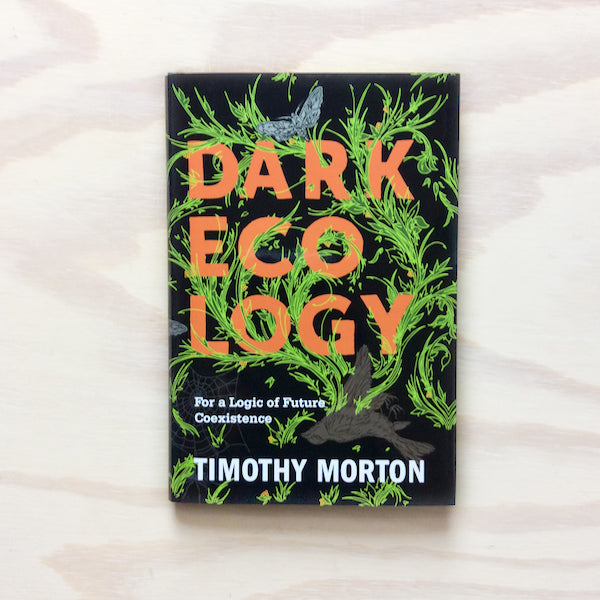Dark Ecology
Dark Ecology
Timothy Morton
Columbia University Press
2018
9780231177535Softcover
22.00 x 15.00 x 2.00
208 pages
Couldn't load pickup availability
Timothy Morton argues that ecological awareness in the present Anthropocene era takes the form of a strange loop or Möbius strip, twisted to have only one side. Deckard travels this oedipal path in Blade Runner(1982) when he learns that he might be the enemy he has been ordered to pursue. Ecological awareness takes this shape because ecological phenomena have a loop form that is also fundamental to the structure of how things are. The logistics of agricultural society resulted in global warming and hardwired dangerous ideas about life-forms into the human mind. Dark ecology puts us in an uncanny position of radical self-knowledge, illuminating our place in the biosphere and our belonging to a species in a sense that is far less obvious than we like to think. Morton explores the logical foundations of the ecological crisis, which is suffused with the melancholy and negativity of coexistence yet evolving, as we explore its loop form, into something playful, anarchic, and comedic. His work is a skilled fusion of humanities and scientific scholarship, incorporating the theories and findings of philosophy, anthropology, literature, ecology, biology, and physics. Morton hopes to reestablish our ties to nonhuman beings and to help us rediscover the playfulness and joy that can brighten the dark, strange loop we traverse.
Timothy Morton is Rita Shea Guffey Chair in English at Rice University. His books include Ecology Without Nature (2007); The Ecological Thought (2010); Hyperobjects: Philosophy and Ecology After the End of the World (2013); and Realist Magic: Objects, Ontology, Causality (2013); and he has published more than 150 essays on ecology, philosophy, art, literature, music, architecture, and food. He has collaborated with several artists, including Björk, Olafur Eliasson, and Haim Steinbach, and blogs regularly at ecologywithoutnature.blogspot.com.

